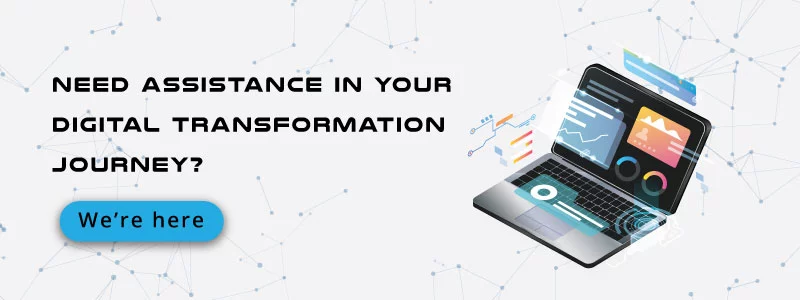If you aren’t aware, cryptocurrency can be stored in two types of e-wallet forms – hot wallets and cold wallets. Build A Hot Crypto Wallet are computer applications that facilitate the storing and exchanging of cryptocurrencies, whereas cold wallets are hardware devices (i.e. USB drive) or paper receipts. So, how to build crypto wallet? In this article we’re gonna talk about hot crypto wallet development.
Unlike standard e-wallets that store and transfer fiat money, and are mostly used via mobile apps, people instead use crypto wallets in both mobile devices and desktops. Therefore, when building a crypto wallet, you’ll need to design it according to both of these platforms.
What Are Hot Crypto Wallets?
Hot crypto wallets are a form of software program that can be accessed via smartphone or a computer. These wallets allow users to store and transfer more than 100 cryptocurrencies at once. Most of the crypto wallet companies offer both hot as well as cold wallet storage options to their users. If you want to build your own crypto wallet, it’s a good idea to take a look at the features.
Features A Hot Crypto Wallet Require
Before We learn how to build crypto wallet, let’s look at the features that you should include in it. The features are what make an app worth using and are what makes a user prefer one app over other apps. Features for ordinary e-wallets like Alipay or PayPal are commonly known. But as the cryptocurrency wallets are very new to the market and require a higher level of security, you might not be aware of some features that crypto e-wallets need. However, many features of crypto wallets are similar to those used for e-wallet app development.
Pay Via Crypto
As several merchants across the globe accept payments via cryptocurrencies, it is advantageous for your crypto wallet app to facilitate payment functionality. You should allow users to pay via QR codes or addresses. Your app should check the receiver’s address before making the transaction.
Two-Factor Authentication
Your app should ask for user authentication every time that a user logs out or logins into the app. You can use the email and phone number authentication to maximize the login security, while keeping the experience intuitive.
Real-Time Push Notifications
Due to the adoption of personalized notifications, push notifications are becoming obsolete for mobile app experiences across several industry verticals. However, with a FinTech app like crypto wallet, push notifications are still necessary. Your app should alert users via email and app notifications about every transaction and activity. This will help you overcome the challenges of fraudulent activities.
Cryptocurrency Exchange
The ability to store and pay via cryptocurrencies isn’t sufficient for a crypto wallet. The users should also be able to buy and sell cryptocurrencies within their wallet. It will be effective if you allow the users to exchange one cryptocurrency into another, for example Bitcoin into Ether.
Real-Time Crypto Price Updates
Your crypto wallet should act as more than just a platform to store and exchange cryptocurrencies. In order to win over the existing crypto apps in the market, you’ll have to embed several advanced features into your crypto wallet app. There are only a few crypto wallets that provide users with real-time crypto price updates; hence, there is an enormous opportunity for you to take advantage of.
The rest of the features for a cryptocurrency wallet app are very similar to general e-wallet apps. You can read the following article to know more about those features: What Are The Essential Features For E-Wallets In 2021?
Recommendations For Crypto Wallet Development
If you are building crypto wallet, this section is for you. Developing a crypto wallet is literally a tough nut to crack. Doing it in-house will not only be burdensome and prone to failure, but also very costly. If you want a superb crypto wallet app, while keeping the crypto wallet app development cost low, it’s better to consider hiring a FinTech app development company.

The FinTech app developers charge different hourly rates based on the region that they operate from. I’ve written an article where I’ve described this topic in-depth. You can read it here: FinTech Software Development Services Hourly Rates Guide
The following are some critical recommendations for crypto wallet development:
Utilize Cryptocurrency Libraries
In this modern software development ecosystem, one doesn’t have to build things from scratch. The same goes with crypto wallet development. Your cryptocurrency wallet developers can make sure of many SDK or APIs available out there. Here I’m mentioning some:
BitcoinLib (C#)
Despite the fact that C# and .NET framework are among the nightmare for cryptocurrency wallet developers, BitcoinLib is quite easy to use. It is compatible with all the RPC APIs for Bitcoin, Bitcoin Core, altcoins, and many more.
BitcoinJ (Java)
If you want your e-wallet to be created in Java, this is the library for you. It enables your crypto app to facilitate transactions without having to locally install a Bitcoin core client. It gives you access to everything that your crypto wallet needs including multi-signing, encryption, and coin control.
Pycoin (Python)
Developing crypto wallet apps using Python is very easy. Pycoin simplifies it even further by enabling interaction with keys, transactions, and other cryptocurrency services. It will also allow you to enable signing EDCSA keys.
Awesome CryptoCoinJs
This is a library for Node.js and JavaScript and gives you access to amazing front and back-end features. It also boasts features like colored coin and multi-signature support.
Sync Your Crypto Wallet With Third-Party Crypto Services
For real-time currency exchange data, you’ll need to integrate your crypto app with third-party service providers like Coinbase. You’ll also need to synchronize your crypto wallet with the blockchain ecosystem. Hence, integrating with external APIs like Factom and Bitcore is a must for your crypto wallet. This will also eliminate the need to develop specific features like handling payments.
Pick The Right Cloud Platform
Among dozens of cloud options for crypto apps, it might get confusing for you to pick the right one. However, for most of the crypto apps that we’ve developed at Nimble AppGenie, we have used AWS Amplify, which is a mobile backend as a service cloud solution.
Invest In App Security
When governments and regulatory bodies are still unconfirmed about the security of cryptocurrency, it is essential for you to go with an upfront approach to incorporate robust security into your crypto app.

It is recommended to add an extra security layer for user authentication. Modern e-wallet apps use fingerprint scanner face ID, which you can use for your crypto wallet too. Moreover hardware authentication is also a very reliable option to enhance your crypto wallet security.
What Will Be The Offshore Development Cost for Crypto Wallet Development?
Undoubtedly, getting your crypto wallet developed offshore is the best approach to drive faster ROI. It is because offshore development companies charge less in terms of hourly rate which significantly reduces the overall cost of your crypto wallet development. However the hourly rates for offshore development varies as per the region of your development partner.
To give you a ballpark estimate, the cost to develop a crypto wallet varies between $50,000 to $150,000. The cost will be higher if you associate with a high-scale software development consultancy.

Wrapping Up
The ever-evolving popularity of cryptocurrencies has raised the need for cryptocurrency app development. There are significant challenges that one may encounter while developing crypto wallets. Hence, I recommend that you partner with the top FinTech app development companies, who can help you build the most secure crypto wallets that are ready to excel in the market. With the crypto wallet development company you can build crypto wallet that leads your business to success.


Niketan Sharma is the CTO of Nimble AppGenie, a prominent website and mobile app development company in the USA that is delivering excellence with a commitment to boosting business growth & maximizing customer satisfaction. He is a highly motivated individual who helps SMEs and startups grow in this dynamic market with the latest technology and innovation.
Table of Contents












No Comments
Comments are closed.